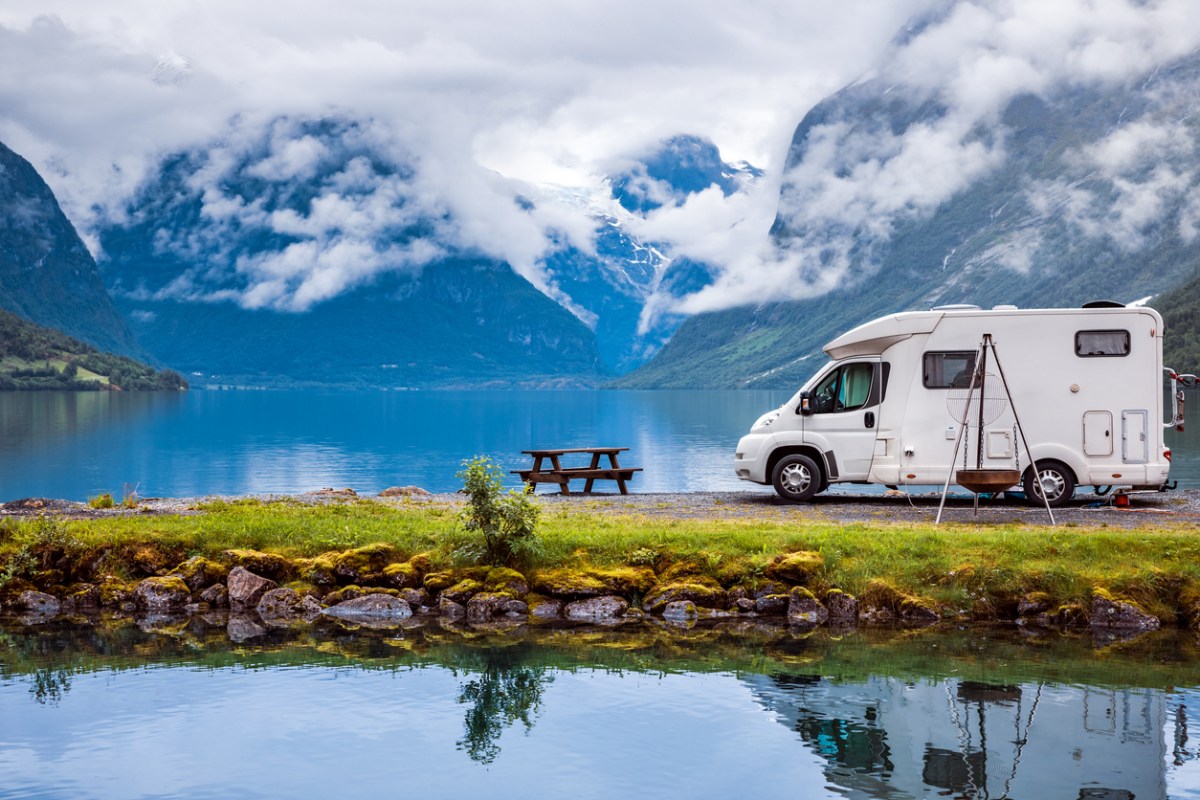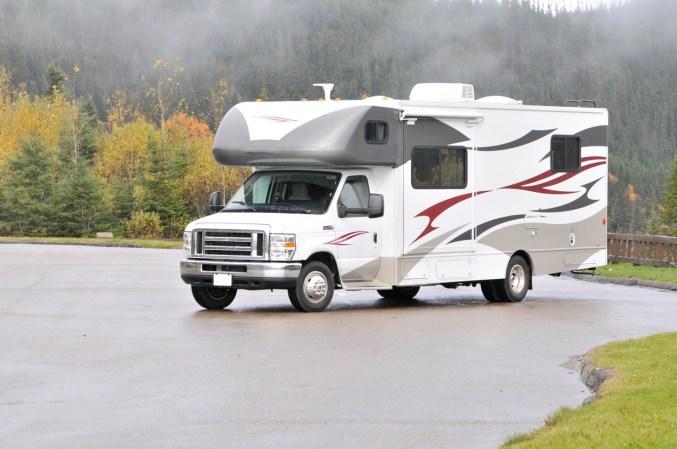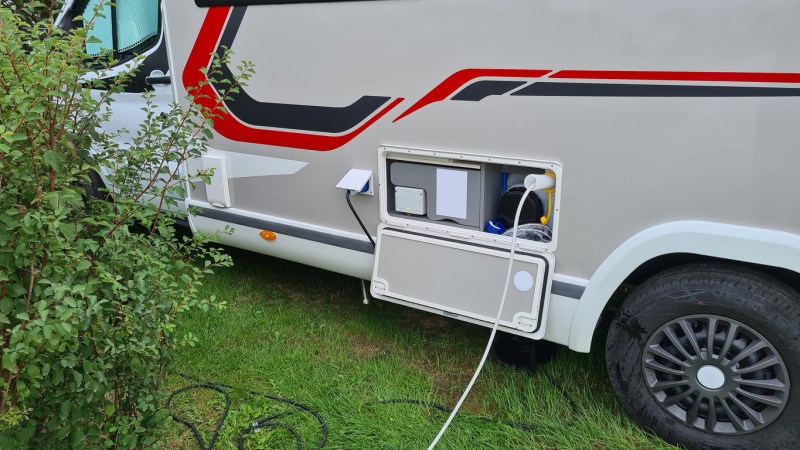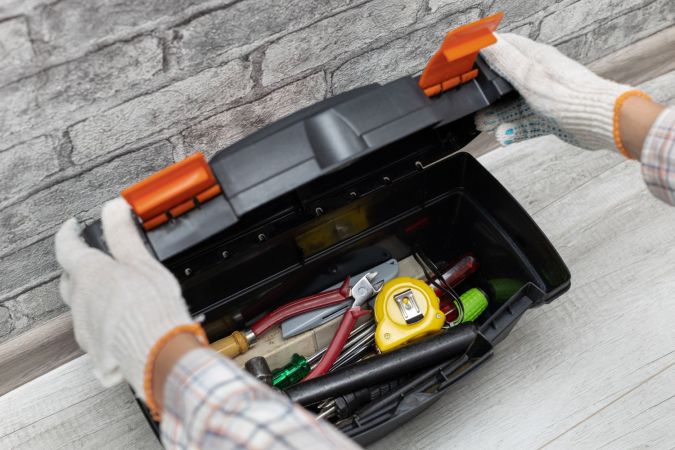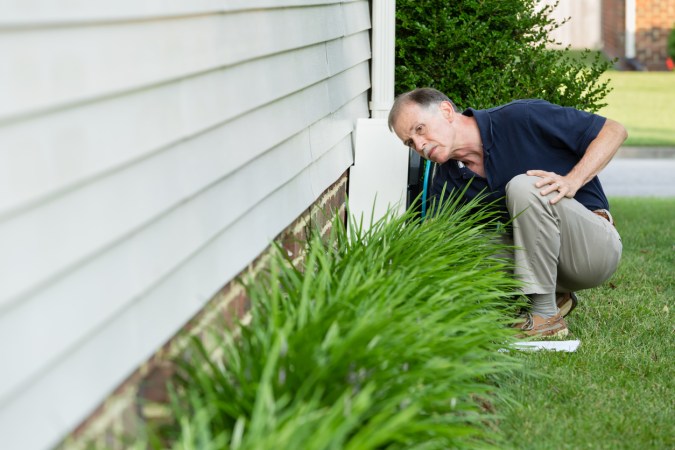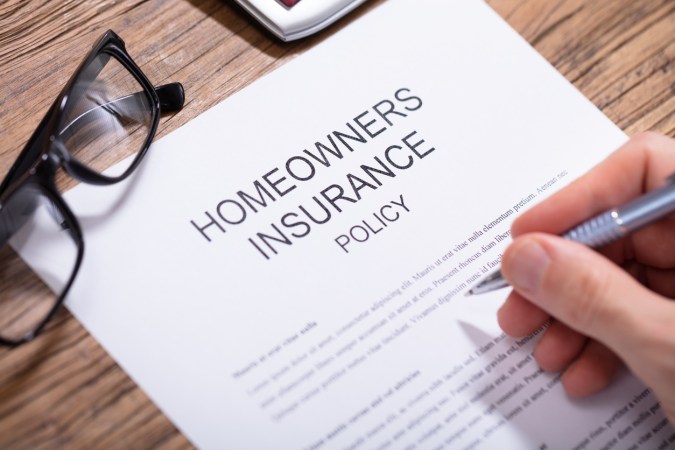We may earn revenue from the products available on this page and participate in affiliate programs. Learn More ›
Q: My husband and I plan to retire next year and want to travel the country in an RV. We know we probably need recreational vehicle insurance but aren’t sure if it works like homeowners insurance, car insurance, or something different. What does RV insurance cover, and what might we expect from our policy?
A: Before hitting the road, RV owners will want to protect their investment with insurance. RV liability insurance is required by law in every state, but it’s an additional expense they may not have factored into the cost of RV ownership. Regardless of whether it’s required or not, having RV insurance can provide peace of mind that the owners will be protected financially if the RV sustains physical damage from a covered loss or causes injury or damage to a third party.
RV insurance policies work similarly to car insurance and are designed to help protect RV drivers from the cost of repairing or replacing their RV in the event of an accident on the road or damage to the RV while it’s parked or in storage. Full coverage includes liability protection, which helps pay for injuries to a third party or damages to another vehicle if the driver of the RV is at fault. Other common RV insurance coverages include collision coverage, which pays for repairs to the RV if it collides with another vehicle or object, and comprehensive coverage, which covers theft of the vehicle, vandalism, fire, damage caused by acts of nature or collision with wildlife, and damage to the windshield.
RV insurance typically provides several types of coverage to help protect your motorhome.
Many RV insurance policies combine aspects of both homeowners insurance and car insurance. When insuring an RV, owners will want to consider what they’ll use the vehicle for. For example, an RV owner who is planning to live in their motorhome full-time may want more coverage than an owner who only occasionally uses their RV for vacation purposes.
RV owners will want to check their state insurance requirements for recreational vehicles. All states require a minimum amount of liability coverage on motorhomes or motorized RVs. Travel trailers, like a pull-behind camper, do not need to be insured by law, although if they are financed, the lender can require them to be fully insured. However, most owners of non-motorized campers still choose a camping trailer insurance policy to protect themselves against expensive incidents on the road. RV trailer insurance is relatively inexpensive and can help the owner pay for repairs if the trailer is damaged by a covered event.
Property damage liability coverage helps pay to repair any damage to another vehicle or someone else’s property if you are found liable for causing the damage.
All RV insurance policies include liability coverage, as it’s required by law in all states for motorized RVs. Liability coverage helps pay for repairs, medical bills, legal fees, and other expenses to third parties if the RV owner is found liable for an accident. Liability coverage is generally broken down into two categories: property damage liability and bodily injury liability.
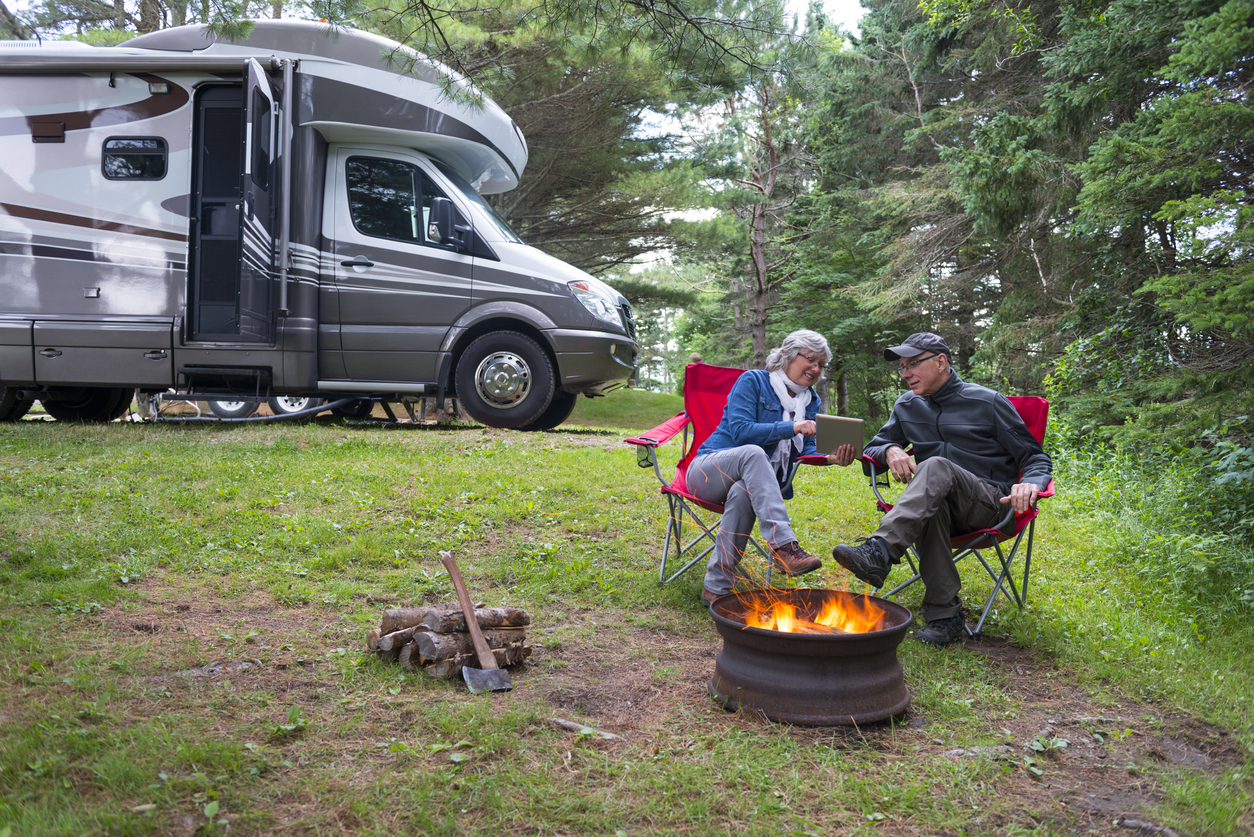
Property damage liability coverage helps pay for repairing or replacing property if the RV owner damages it with their vehicle. If, for example, an RV owner backs into another vehicle in a parking lot, they would likely be held liable for the damage done to the parked car. The property damage liability component of the RV owner’s insurance can help cover these repair costs.
Bodily injury liability coverage helps pay for medical bills and lost income if a third party is injured in an accident that is determined to be your fault.
Like property damage liability coverage, bodily injury liability coverage protects the RV owner from legal fees and expenses if they’re found liable for an accident involving their motorhome. Bodily injury liability coverage, however, helps cover medical bills and other expenses if the accident injures a third party.
If, for instance, an RV owner accidentally rear-ends another motorist while driving their RV, the other driver may experience injuries related to the accident and need to go to the emergency room. The RV owner’s bodily injury liability coverage could help pay for the injured party’s medical bills. Liability insurance can also help cover legal fees, such as those for an attorney and related court fees, if the injured driver decides to sue the RV owner for damages.
Collision coverage pays for damage to your recreational vehicle after an accident, regardless of fault.
In addition to liability coverage, RV owners can also purchase coverage to protect the RV itself. Generally, these additional types of coverage help pay to repair or replace the RV in the event of a covered loss. Additionally, coverage is available to help pay for the medical bills of the RV driver and any affected passengers in the event they are injured in an accident.
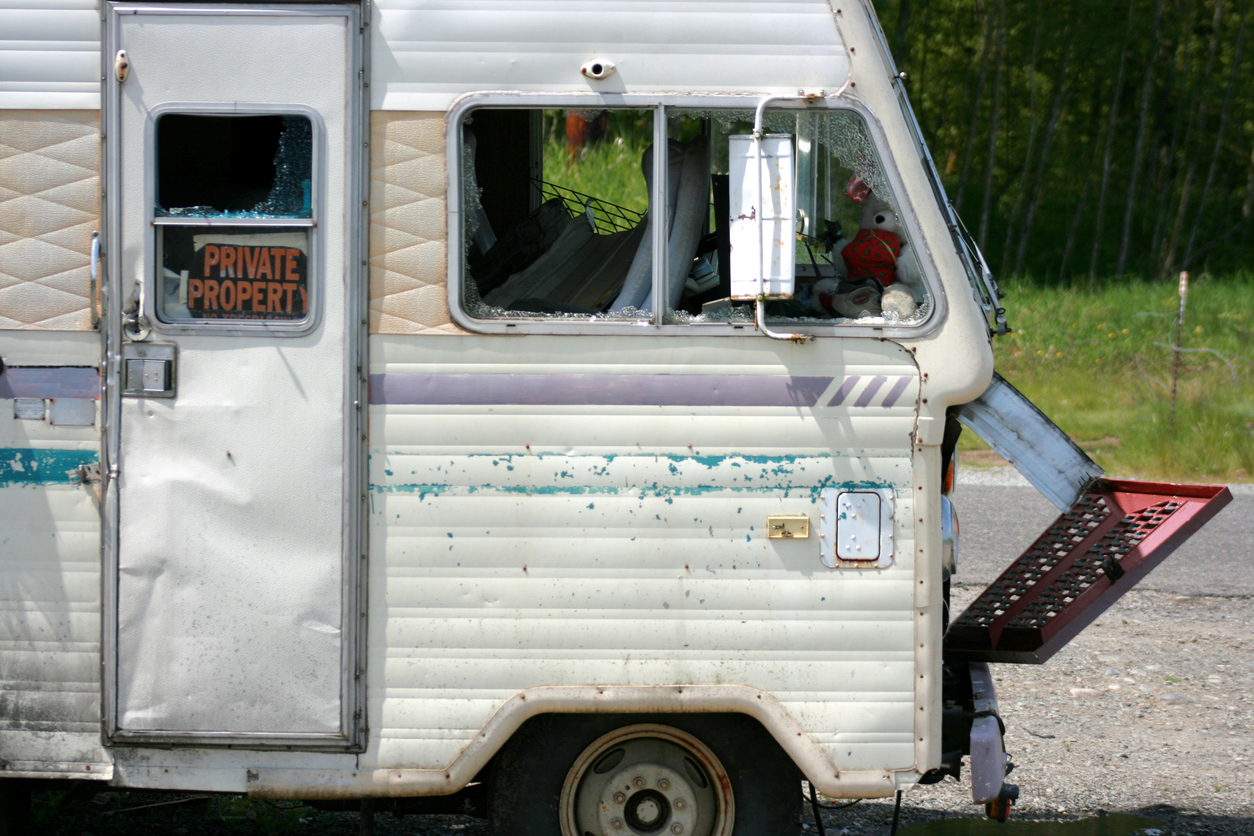
Collision coverage may be required if the RV is financed, and like auto collision coverage, it helps RV owners pay for repairs if their motorhome collides with another object. This coverage comes with a deductible, which is the amount of a claim the policyholder is responsible for paying. This coverage could apply if an RV driver hits another vehicle or runs into a stationary object, such as a light pole or guardrail.
One of the most notable exclusions to collision coverage is a collision with an animal. If a deer jumps in front of an RV and causes an accident, comprehensive coverage (covered in detail below) will pay for the repairs instead.
Comprehensive coverage is designed to pay for damage to your RV that is caused by something other than a collision, such as a covered weather event or vandalism, as well as theft of the vehicle.
In addition to covering collisions with animals, comprehensive insurance helps RV owners pay for expensive repairs due to events outside of their control. Comprehensive coverage applies if the vehicle is stolen, or for vandalism, fire, damage caused by falling debris such as branches or rocks, and weather events such as hail. It also includes coverage to replace the vehicle’s windshield.
Some RV insurance policies also cover certain water-related incidents. Inside RV campers are typically some sort of plumbing system, from simple water tanks to whole bathroom setups. In an accident, RV sewer pipes, water tanks, and interior plumbing could sustain damage. Regardless of whether an RV owner has purchased one of the best RV sewer hoses, damage from an accident can cause a water leak, and such instances are typically covered by comprehensive coverage.
However, there is no specific standard for what is and isn’t covered by comprehensive insurance for camping vehicles. RV owners will want to contact an insurance agent for an RV insurance quote and find out exactly what a policy covers. Carefully reading the comprehensive coverage terms and exclusions could help RV owners avoid an unpleasant surprise when filing a claim.
Uninsured and underinsured motorist coverage helps pay for damages or injuries caused by a collision with a driver who either doesn’t have enough insurance to pay or doesn’t have insurance at all.
Although every state requires liability car insurance for drivers, not every driver carries it. In other cases, the driver only carries the minimum required amount. Unfortunately, if these drivers get into an accident with an RV owner, the driver’s insurance might not be enough to cover the damage they cause. Luckily, RV owners can get underinsured and uninsured motorist coverage for their RV. This insurance helps cover the gap if another driver is at fault in an accident but their liability coverage isn’t adequate to pay for repairs to the RV.
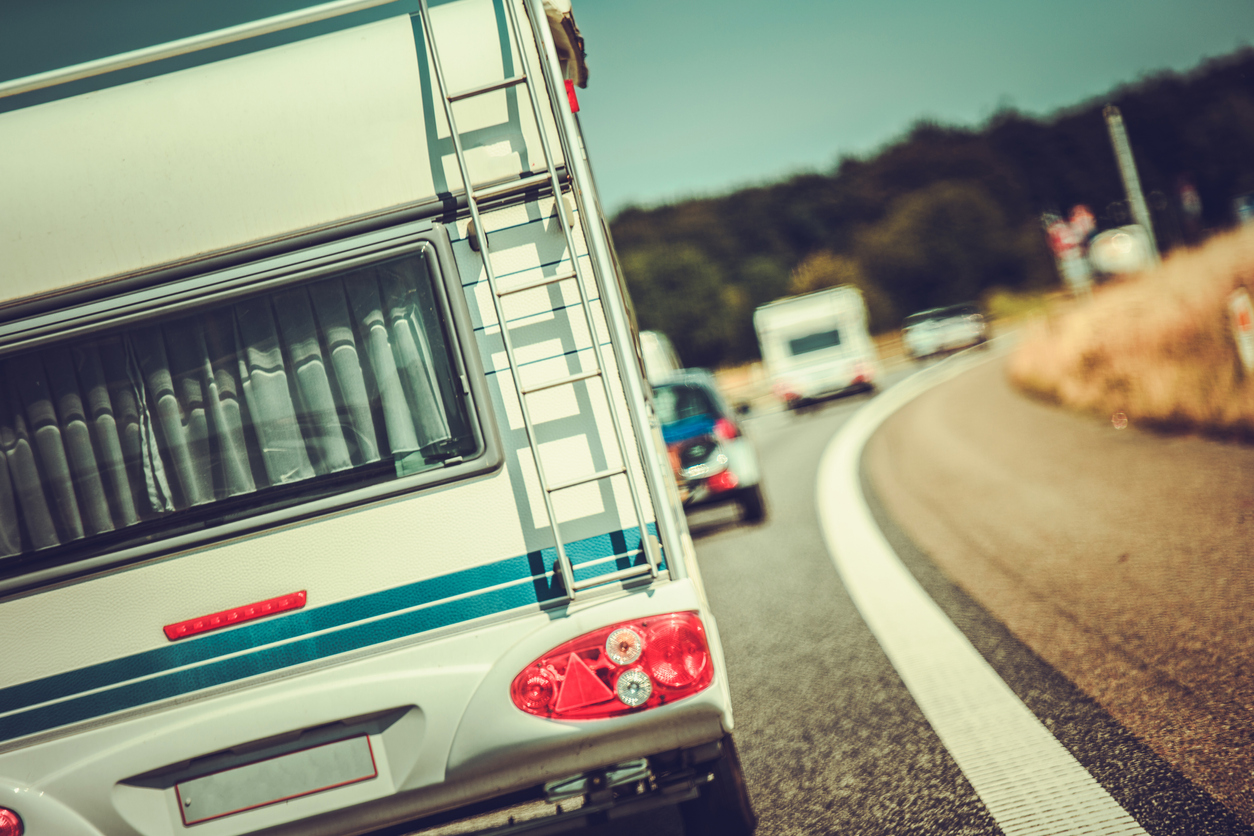
For example, another driver could accidentally run into the side of the RV camper while it’s parked at night and cause significant damage to the RV’s frame. While the other driver may have insurance, they might only carry the minimum required liability insurance and not have a high enough coverage limit to pay for the damages to the RV. In this case, the RV owner may be out of luck and have to pay out of pocket for the damage that exceeds the driver’s insurance limit. RV owners who carry uninsured or underinsured motorist insurance, however, would be able to use that coverage to cover the cost of repairs that exceed the coverage limits of the driver at fault.
Medical payments coverage helps pay for medical bills for you and your passengers after an accident, regardless of fault.
While bodily injury liability coverage helps pay for medical bills if an RV owner causes bodily harm to another driver or pedestrian, it doesn’t pay for their own medical bills (or those of their passengers) in the event of an accident they are at fault for. Luckily, RV owners can usually add medical payments coverage to help pay for their own medical bills or those of their passengers if they are involved in an accident. The main benefit of medical payments coverage is it can help cover medical bills regardless of who caused an accident.
What this means is that if an RV owner is involved in an accident with another driver and is at fault, and both are injured, the RV owner’s insurance could help pay for both of their medical bills. The RV bodily injury liability coverage would help cover the cost of the other driver’s medical bills. Medical payments coverage, on the other hand, helps pay for the medical bills of the RV driver and any passengers.
Liability coverage is required by law in all states, but you can more fully cover yourself and your RV if you opt for the extra coverage that’s available.
Adding more than just the minimum required liability insurance to an RV or motorhome could help protect RV owners from accidents on the road. Additional coverage could be especially beneficial to full-time RV dwellers or van-lifers. Higher liability coverage limits can help ensure that the RV owner is more fully protected and is less likely to have to pay out of pocket for any liability claims.
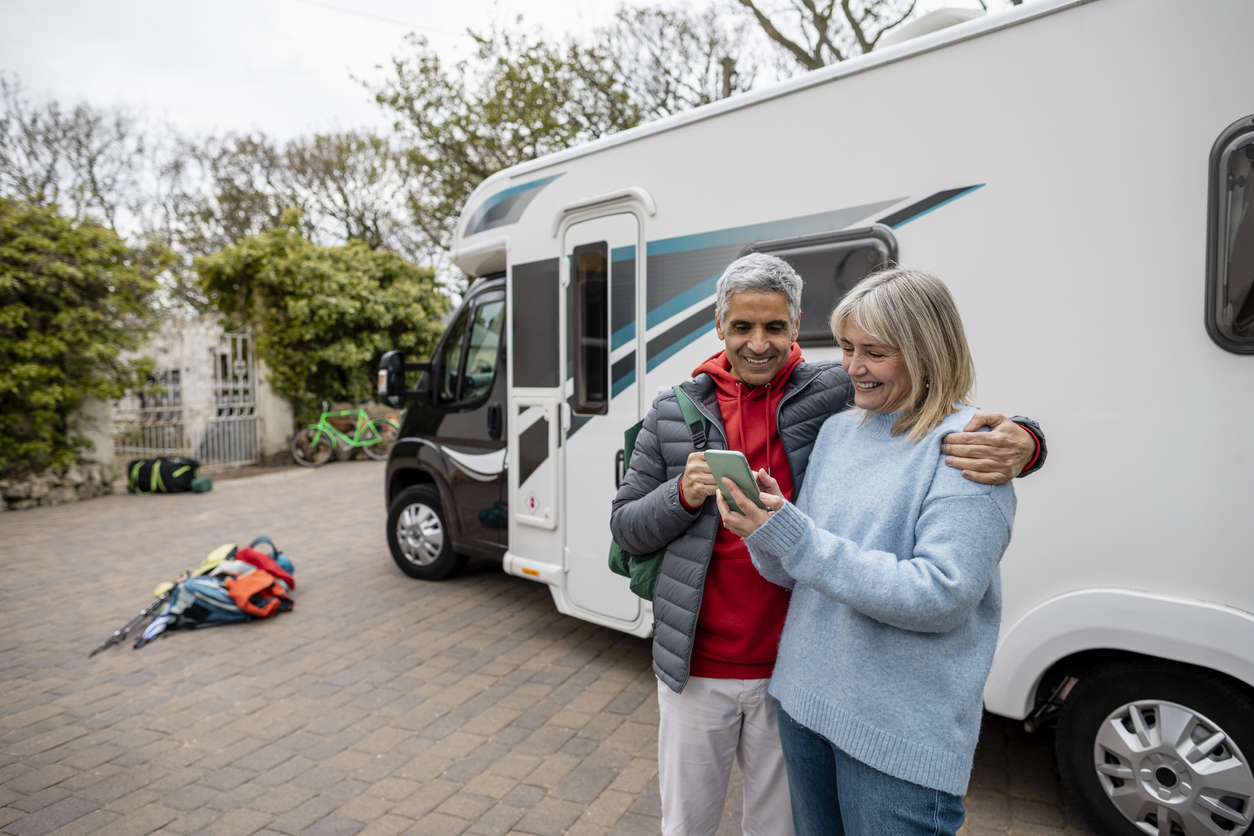
There are also different types of coverage that RV owners may want to look into. Roadside assistance, for example, provides help for RV drivers if they need a battery jump start, if they lock themselves out of their vehicle, need help with a tire change, or run out of gas. It can also act as a type of RV tow insurance to move the RV to the nearest town for repairs, if that’s necessary. Other types of coverage helps protect the RV owner’s belongings inside of the RV when they’re away from home.
As with many things about owning an RV, new owners may be surprised to learn about their insurance options. It’s recommended that campers shop around to find the right insurance for their rig. Insurance for a pop-up camper, for example, is typically not required and will be different from the insurance needed for an oversize motorhome. RV owners may be able to save money by looking for the best home and auto insurance bundles, some of which may cover motorhomes. Alternatively, a driver considering different types of camping vehicles may want to go with a trailer rather than a motorhome, as insurance for camper trailers is typically less expensive (and often not required, unless the camper is financed). In this case, the driver’s auto liability insurance would extend from the towing vehicle to the camper.

